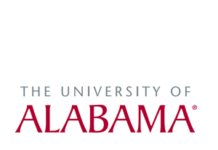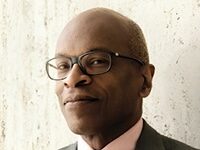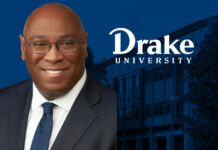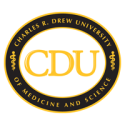 Caroline Hoxby, the Scott and Donya Bommer Professor of Economics at Stanford University recently completed a study on the college application behavior of high-achieving, low-income students. She found that many of the nation’s most talented minority students simply do not apply to our nation’s leading colleges and universities.
Caroline Hoxby, the Scott and Donya Bommer Professor of Economics at Stanford University recently completed a study on the college application behavior of high-achieving, low-income students. She found that many of the nation’s most talented minority students simply do not apply to our nation’s leading colleges and universities.
Professor Hoxby found that many of these students are simply unaware of the educational opportunities that are available to them or our scared away by the high ticket prices at these institutions. Her research found that when students are made aware of their opportunities and are educated that they can receive scholarship grants that cover most if not all of their expenses, these students will apply and enroll at these top schools.
Dr. Hoxby and colleagues developed the Expanding College Opportunities program which was tested on about 40,000 students using a randomized controlled trial. Students targeted by the project received the same sort of information and reminders that they might receive if an expert counselor were guiding them through the college application process. But, in this case, the information comes not in person but through the mail and online.
“We showed students how to find colleges for which they were best prepared academically. In other words, we tried to help them make wise decisions for themselves,” Professor Hoxby said.
Students who received the intervention submitted 48 percent more applications than those who did not, and they were 56 percent more likely to apply to a “peer” institution where other students had similar test scores and grade point averages.
“If a child has managed, despite coming from a low-income family, to become extremely well prepared for college, it is a huge waste if she fails to get a great college education simply because she doesn’t know that she could,” Professor Hoxby said.
Professor Hoxby is a summa cum laude graduate of Harvard University. She earned a master’s degree at Oxford University as a Rhodes Scholar and a Ph.D. in economics at the Massachusetts Institute of Technology. She has taught at Stanford since 2007 after teaching at Harvard for 13 years.
Professor Hoxby’s co-author on the study is Sarah Turner, University Professor of Economics and Education at the University of Virginia. The paper, “Expanding College Opportunities for High-Achieving, Low-Income Students,” can be downloaded here.











Article contains subjective and bias assumptions in its conclusions. With the sophisticated identity and tracking systems in place to find bright students,its difficult to accept your conclusion they lack information about opportunities at “great schools” whatever that means. A major factor often overlooked is students comfort zone mental health wise in ruling out attending “great school”. A case in point is could this be the force behind HBCU schools graduating a disproportionately higher percentage of blacks who go on to professional school and earn terminal degrees in spite of their disadvantages?
I struggle with an assessment presented from one who has a less than diversified higher education experience. Some people actually believe that HBCUs and other small universities provide the same valuable educational opportunities as those refered to as “Ivy League”. Some of us high-performers intelligently and purposefully only applied to HBCUs with specific intent to patronize and support the institutions built for us. More so, school is about much more than academics, as it provides a setting and structure designed for rapid maturation. With that, social and cultural aspects play a significant role as well. The tone of this article just disturbs me, but is not surprising. The elite attitude projected is unfortunately far too common amongst Black people who attended the “great schools”. They tend to be out of touch and somewhat disconnected. But don’t get me wrong. There’s absolutely nothing wrong with attending the “great schools”. The issue is drafting misconstrued and biased evidence that encourages the myth that suggests other schools aren’t as great and that college-bound students aren’t making informed decisions.
I agree with William Sankey. Excellent point! At an HBCU, there aren’t many classmates who’ll erroneously assume that you’re only there due to affirmative action/racial preferences.
I need to find a study that addresses the level of comfort, social acceptance, inclusion from peers and the staff at Ivy League Universities. They may offer the very best academic opportunities but what about studies on isolation from peers, the inability to compete financially and the basic mental health for African American Males who come from lower income family units. I have encountered many high achievers who simply do not trust the system of Ivy League Schools. It seems that students generally perform much better when they are in a supportive environment and feel wanted and values by peers and faculty.